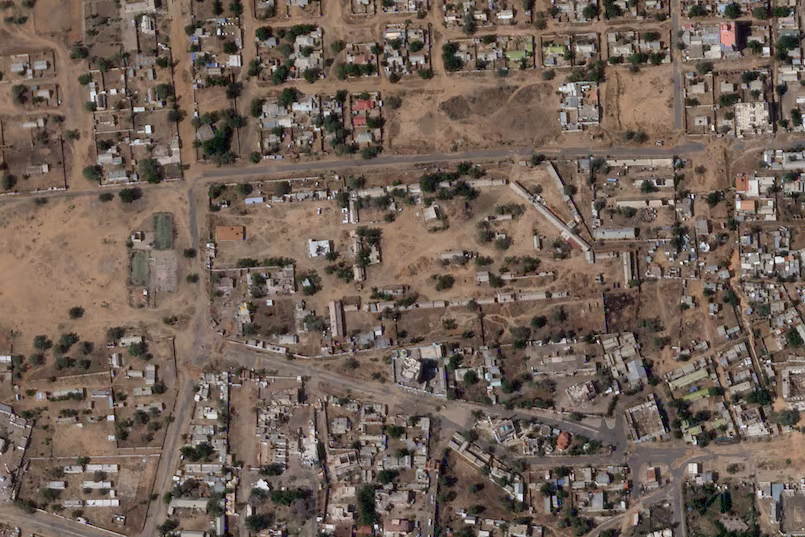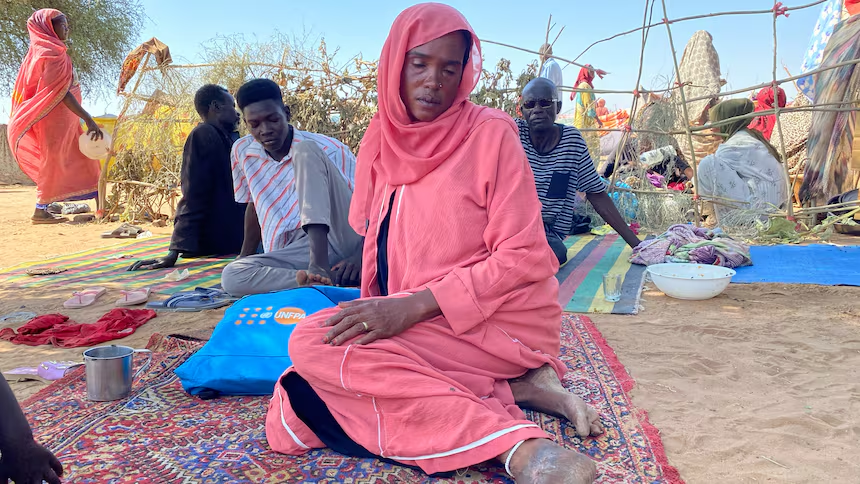Scores of civilians have died in recent weeks as fighting in Sudan escalates into large-scale attacks on towns. Reports estimate at least 2,000 people killed during the city’s fall alone.
Humanitarian groups say the killings include children, women, and the elderly. A recent strike on a shelter in el-Fasher killed 53 people, including entire families hiding from gunfire. Hospitals remain overwhelmed with casualties and have run out of basic medical supplies.
Two Years of Endless War
The Sudanese conflict erupted in April 2023 between the Sudan Armed Forces (SAF) and the Rapid Support Forces (RSF). Since then, more than 50,000 people have been killed and over 12 million displaced.
Entire towns now lie in ruins as famine spreads through several provinces. The humanitarian toll continues to climb, making this one of the worst crises of the decade.
The Cruelty Waged by RSF and Allies
Multiple investigations accuse the RSF of ethnic-based killings and systematic atrocities. Satellite imagery and eyewitness accounts confirm mass homicidal raids in el-Fasher after the RSF takeover.
Survivors described extrajudicial executions, children among the dead, and villages razed to the ground. The pattern echoes the atrocities of Darfur’s early 2000s ethnic cleansing campaigns, reviving old wounds that never truly healed.

Humanitarian Groups Sound the Alarm
Organizations such as UNHCR, UNICEF, and the WFP have called for urgent humanitarian access. More than 30 million people now need assistance in Sudan. Aid convoys struggle under siege conditions, and many camps lack food, clean water, and medicines.
Cholera outbreaks have killed hundreds and infected tens of thousands across the country, turning the crisis into a slow-moving catastrophe.
Limited Global Response Raises Questions
World governments have issued statements and sanctions, but their actions remain limited compared to the magnitude of the crisis. The U.N. has expanded monitoring and called for investigations into war crimes, yet critics argue that the international response lacks urgency.
Despite being one of the largest humanitarian disasters in the world, Sudan receives far less attention than other global conflicts.
Uneven Global Attention and Moral Double Standards
Analysts observe a disturbing contrast in international activism: when conflicts involve Israel or Western nations, protests and global outrage dominate headlines.
Yet in Sudan, entire families — including Christians targeted by Islamist extremists — are slaughtered with minimal global notice.
The discrepancy exposes a troubling moral double standard. Over twelve million people have been displaced, but the world’s silence continues.
A Nation’s Plea for Help
Sudan’s tragedy is not fading — it is intensifying. Children starve in makeshift camps while villages are erased overnight under heavy fire.
Without decisive global pressure, these mass killings and displacements risk wiping out entire communities. The people of Sudan urgently need protection, humanitarian aid, and a cease-fire — before more lives are lost.











